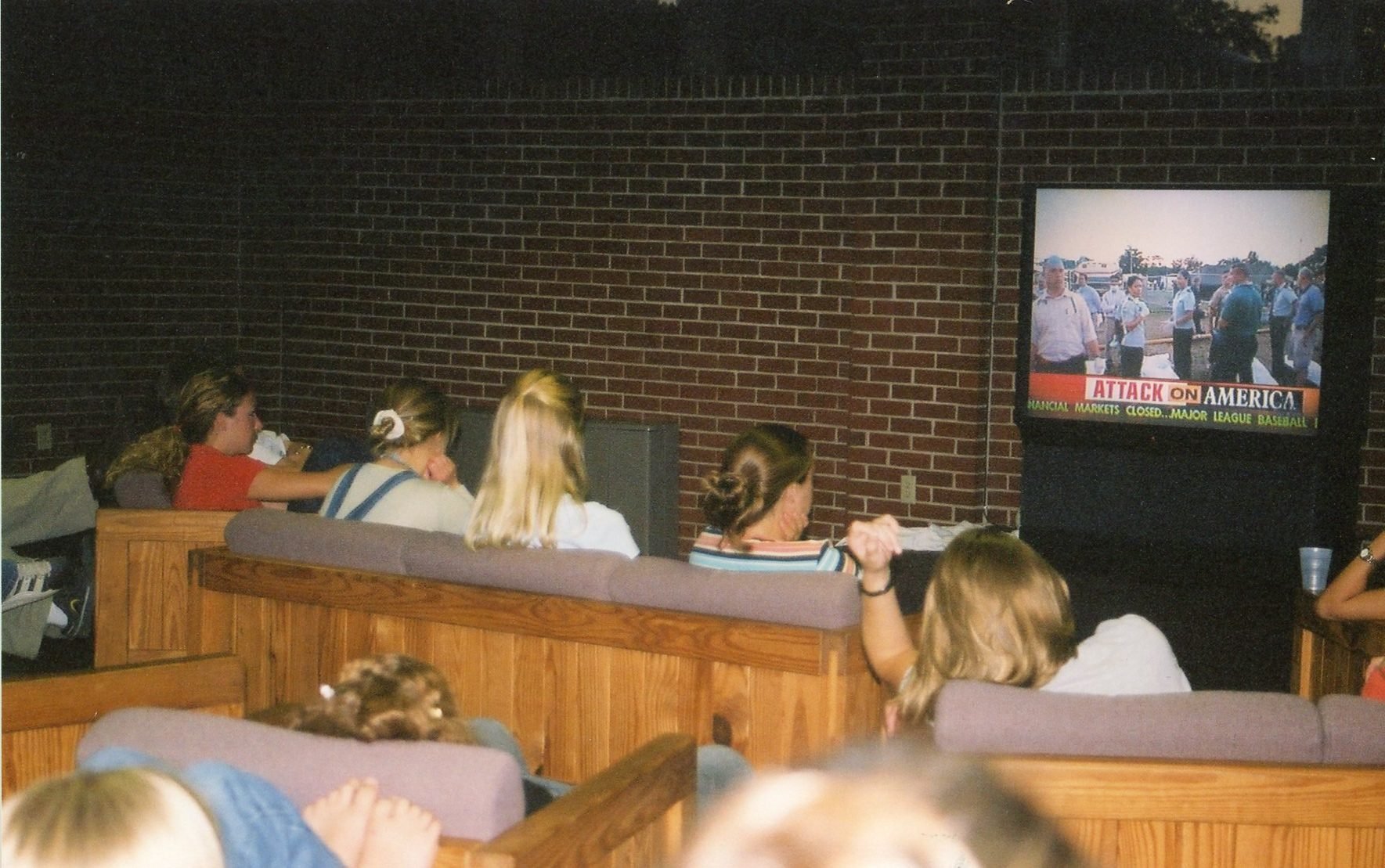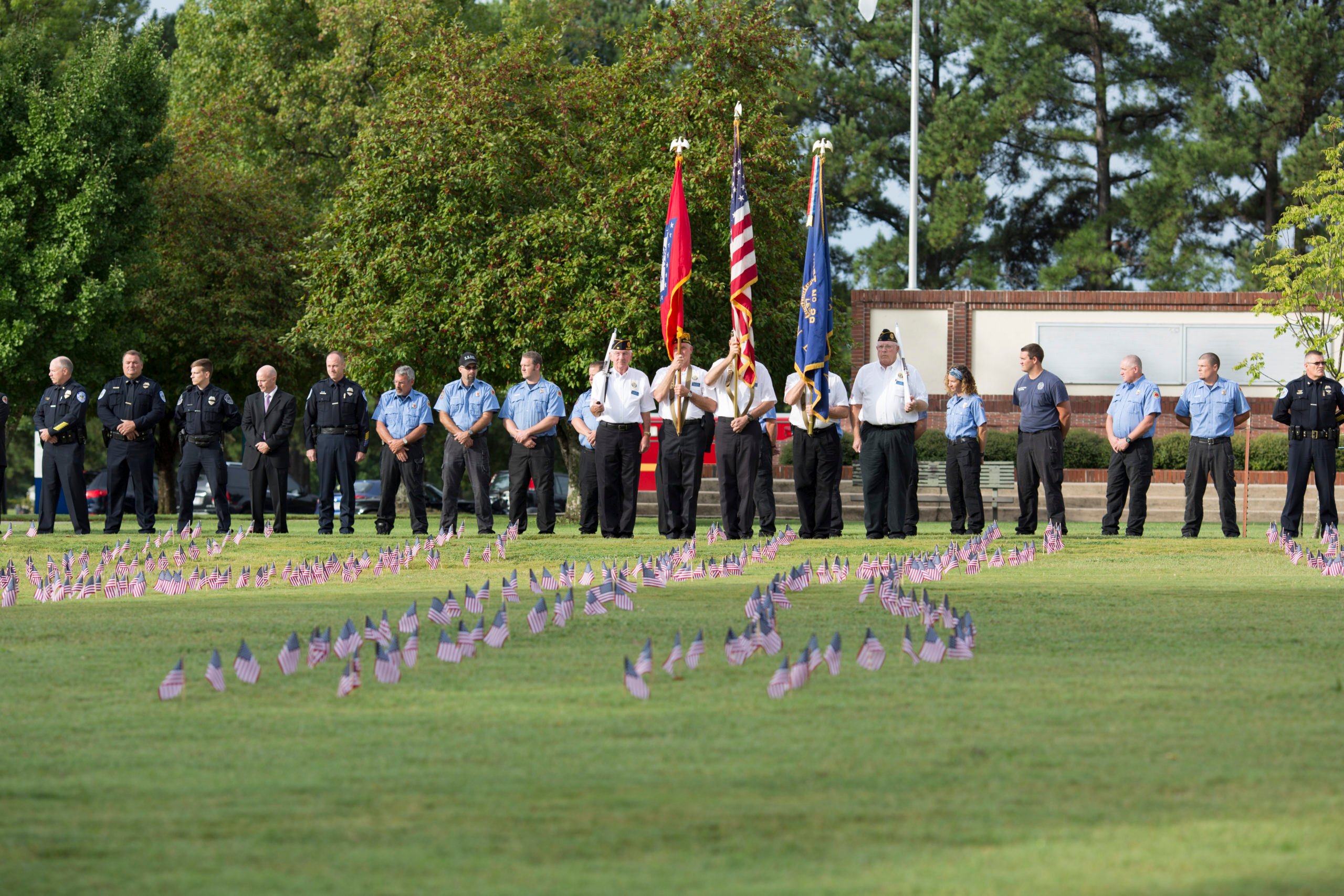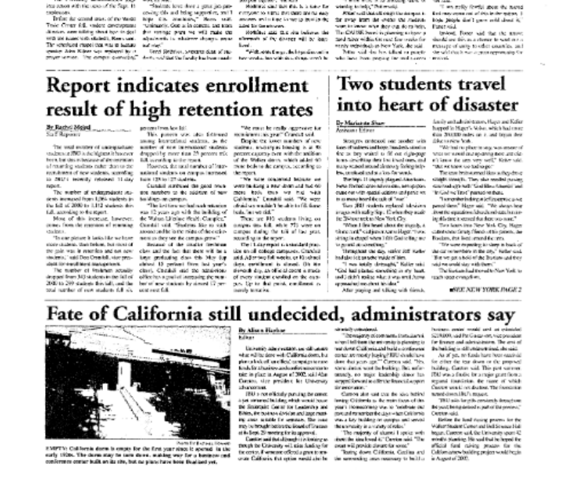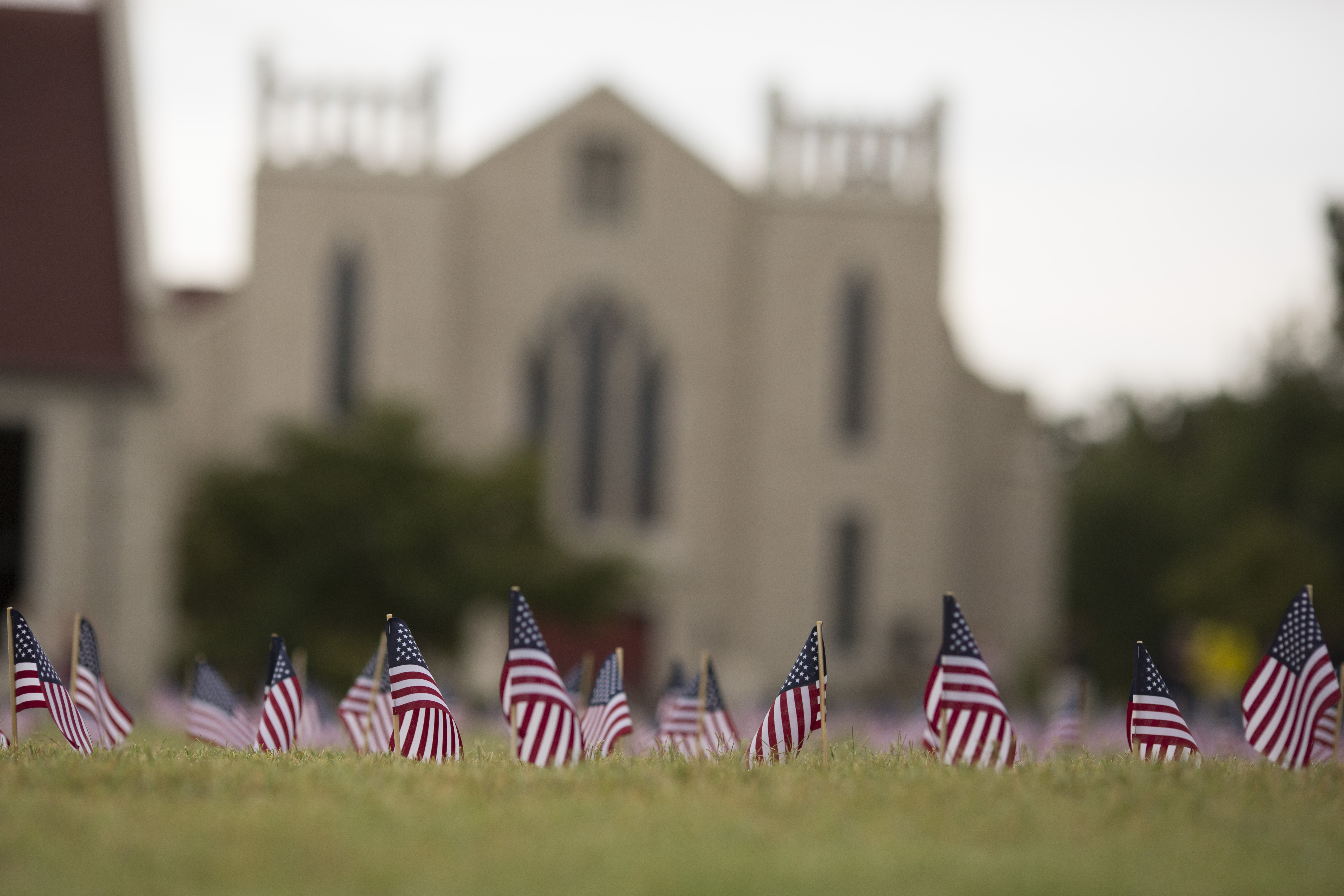![]()
When Marikit Fain woke up to loud thuds outside her dorm room and the heavy footsteps of hurried students walking out of the building, she did not imagine that a national catastrophe had occurred.
As a freshman at John Brown University during the Sept. 11 attacks, Fain vividly recalls the morning her resident assistant informed her a plane had just crashed into the World Trade Center in New York. Twenty years later, as JBU’s archives coordinator, she carries her memories of a somber first semester on campus.
“At the time, cellphones weren’t commonplace. I don’t think any of my friends had one,” Fain mentioned. “This was even before Facebook was a thing, so there were TVs set up in common areas so that people could watch the news.” Due to the lack of readily available information, some faculty and staff members drove to campus that morning with no clue about the attacks.
Joe Walenciak, dean of business development and strategic partnerships, said he remembers the shocked face of the administrative assistant at the time, holding a newspaper in her hand with reports of the attacks on the front page as Walenciak walked out of class that morning. “She just looked at me, and I started to read [the newspaper],” he said. “I was like, ‘What is this?’ because it’s certainly not something you expect to read.”
Tracy Balzer, director of Christian formation, also remembers that Tuesday morning when faculty and staff members gathered around a television set in the campus bookstore and watched the news in horror.
“I remember when the first tower just collapsed,” she said. “How do you even process something like that? We had no previous experience like that to even measure it against. We were just all in shock.”

That morning, students were expected to attend chapel as usual. However, according to Balzer, chapel plans changed to a communal prayer for the victims of the attacks. For some who attended the improvised prayer, it was the first time even hearing about the calamity.
“Attack Stuns Nation” read a headline by the Bentonville Morning News on Sept. 12, 2001. Amid the tragedy, the newspaper reported that “prayers for peace went up Tuesday from John Brown University as students attended a special chapel service responding to the series of attacks in New York and Washington.” According to the article, college classes were not canceled, but students were not required to attend. “I remember my professors being really gracious and accommodating,” Fain commented.
Fain also said that some students experienced anxiety from not hearing back from their families. “It’s reflective that everybody copes in different ways,” she said. “Some students needed to just not do anything for a day or two. Some needed to have a routine of still going to class.”

Prayer, lament and acts of service were all coping mechanisms the JBU community carried out throughout the semester. According to a Threefold Advocate article from Sept. 13, 2001, events like Breakaway were postponed for the rest of the semester as the disaster unfolded and uncertainty overtook people’s minds.
“Where were you when 9/11 happened?” is a question that most people can answer with certainty — except for Gen Z.
As a campus mainly comprised of students born between the late 90s and early 2000s, learning about the JBU community’s connection to 9/11 is essential to understanding how the attacks dramatically shaped the nation and even a small town in Arkansas.
Twenty years after the attacks, the nation has undergone some changes that previously were unthinkable. Walenciak observed such stark changes to security measures and protocols. “When we would go to places like a public event, we began to be a little more security conscious,” he added. “Or we would go to the airport and see that only ticketed individuals could go through security, or that you could only wait for people at baggage claim.”
According to an analysis by Dave Roos for History, 9/11 is an inflection point in the history of the United States. “There was life before the terrorist attacks and there is life after them,” he wrote. From the famous “War on Terror” to the increase of surveillance and the rise of anti-Muslim violence, some of these phenomena we still observe today.
While life at JBU stayed relatively the same, solidarity among the JBU community flourished. Balzer recalls several students wanting to travel to the East Coast to help survivors of the attacks. In fact, another Threefold Advocate article from Sept. 2001, reported that “two students travel[ed] into [the] heart of disaster.”

The fear, grief and shock experienced at JBU did not stop students, faculty and staff from coming together and embracing each other during a time of tragedy.
“We need to understand what it means to love your neighbor; how can you help the people impacted?” Walenciak said. “For us, it was understanding some of our students and what they were going through because they had never seen anything like this.”
Looking back at her memories of 9/11 as a student, Fain said that Christians must reach into other people who are hurting. “Something that really struck me was seeing how this one act fundamentally changed how the church responded to the Muslim and Middle Eastern populations,” she said. “It created a whole new generation of a bias, and it just never made sense to me. We claimed to be Christians, but we’re turning away from all these people.”
Balzer added that, when a crisis happens, the community must come together and remember Jesus’ words in John 16:33, “In this world, you will have trouble. But take heart! I have overcome the world.”
Feature image courtesy of JBU Archives





